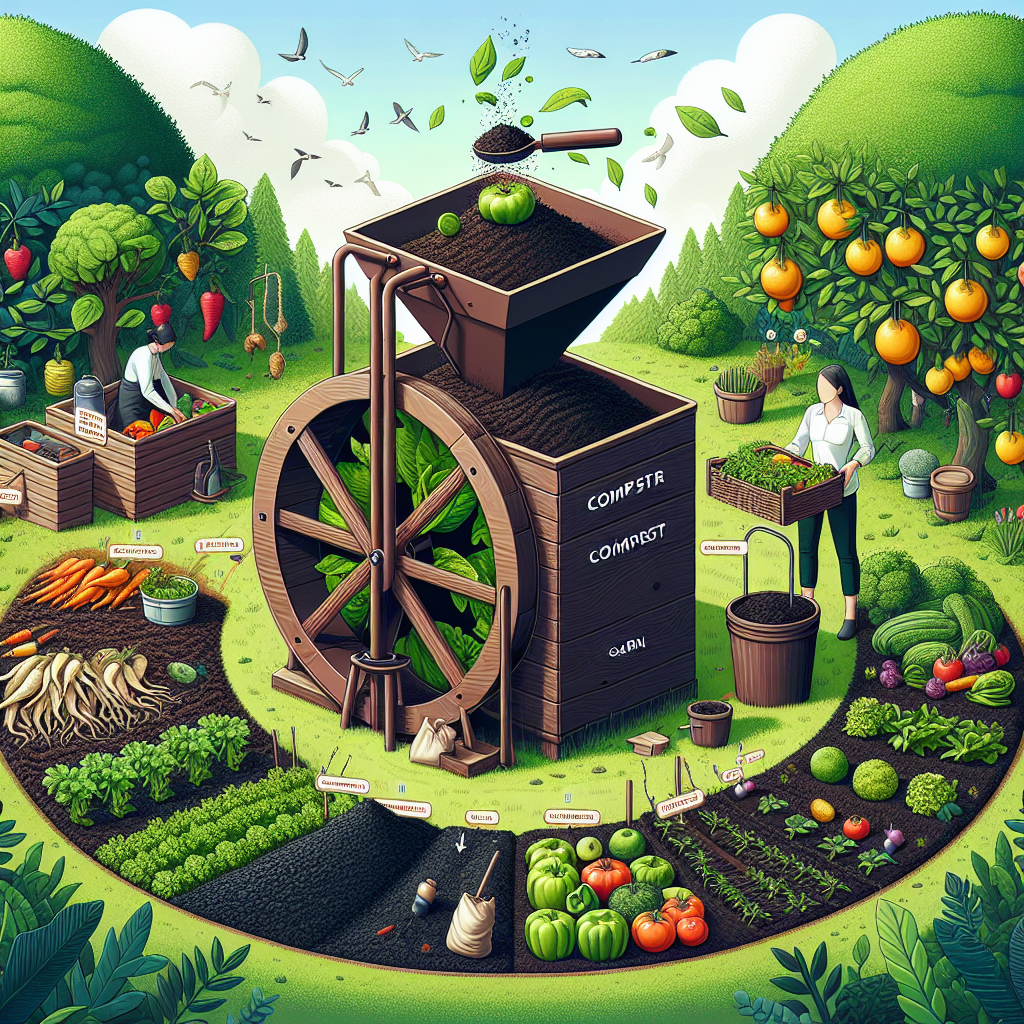Introduction to Mill Composters
A mill composter is an innovative tool designed to transform organic waste into nutrient-rich compost. These composting systems are ideal for gardeners looking to enhance their soil quality, promote sustainability, and reduce waste. In this article, we will explore the benefits of using a mill composter and how it can positively impact your gardening efforts.
How Does a Mill Composter Work?
Mill composters operate by mechanically breaking down organic materials. The process typically involves the following steps:
- Collecting Organic Waste: Gather kitchen scraps, yard waste, and other biodegradable materials.
- Loading the Compartment: Place the organic waste into the composter, ensuring proper aeration by alternating between brown and green materials.
- Mechanical Mixing: The mill’s built-in mechanisms rotate and aerate the compost, speeding up decomposition.
- Harvesting Finished Compost: Once the composting process is complete (usually within a few weeks), collect the finished product for use in your garden.
Benefits of Using a Mill Composter
1. Efficient Compost Production
One of the primary advantages of a mill composter is its efficiency. Traditional composting can take months, but with a mill composter, you can produce compost in a fraction of the time. The mechanical mixing and aeration accelerate the decomposition process, providing you with ready-to-use compost much sooner.
2. Space-Saving Design
Mill composters are often compact and designed for easy placement in small spaces. Whether you have a large garden or a small balcony, these composters can fit into your available space without creating clutter.
3. Improved Soil Quality
The compost produced by a mill composter is rich in essential nutrients, enhancing soil quality. This nutrient-rich compost improves soil structure, promotes healthy plant growth, and increases moisture retention, ultimately leading to higher crop yields.
4. Reduced Waste
Using a mill composter is an eco-friendly choice, as it allows you to recycle organic waste that would otherwise end up in landfills. By composting, you contribute to reducing greenhouse gas emissions and support sustainable waste management practices.
5. Easy to Use
Mill composters are generally user-friendly, requiring minimal effort to operate. With straightforward loading and harvesting processes, gardeners can easily integrate composting into their routine without overwhelming complexity.
Conclusion
Incorporating a mill composter into your gardening practice can significantly enhance your efforts towards sustainable gardening. With its efficient compost production, space-saving design, improved soil quality, and waste reduction benefits, it is a valuable tool for any gardener. Start composting today and enjoy the fruitful advantages it brings to your garden!

Leave a Reply